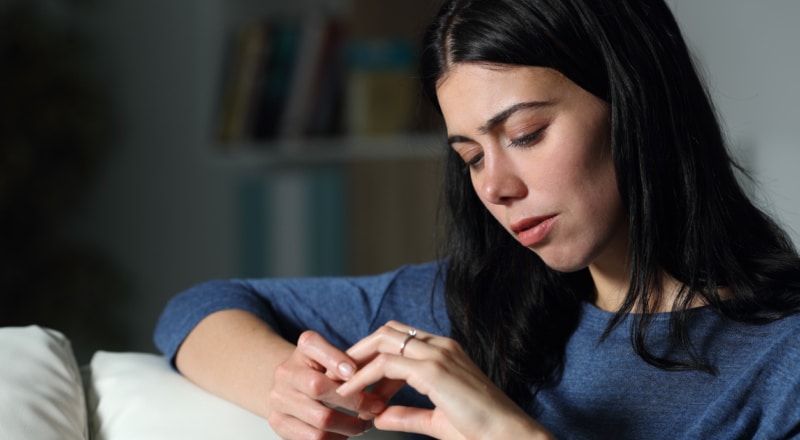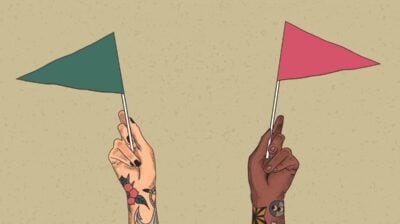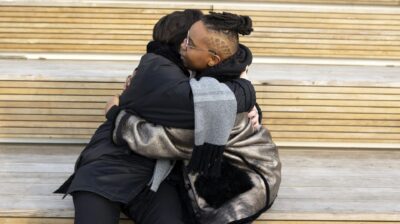What are my rights if I experience abuse as a young person?
Learn more about your rights if you experience abuse in Ireland as a young person


This factsheet is an extract from the publication Know Your Rights: The Rights of Children and Young People published by the Children’s Rights Alliance. It is reproduced here with their kind permission. Know Your Rights is a public information project designed to inform everyone, in plain language, of the rights and entitlements children have in Ireland and where to go when they are not respected.
In Ireland, no matter what age you are, you have the right to be protected from all forms of abuse, violence and exploitation. It can be hard to recognise some types of abuse. If you are experiencing abuse, it can be difficult to open up but talking to someone about what is going on is a good first step.
What legal protection do I have from abuse in Ireland?
The State has a legal duty to look after your safety and welfare. There are laws and organisations in Ireland that work to protect children and young people from abuse, exploitation and to investigate and punish abusers. The Gardaí and Director of Public Prosecutions may have a role to play in prosecuting people that cause harm to children and young people.
What is abuse?
There are four types of child abuse:
- Neglect
- Emotional
- Physical
- Sexual
You may experience one or more forms of abuse at any given time.
What is neglect?
Neglect is when an adult fails to take care of you, and this causes you significant harm or stops you developing properly. Neglect may include:
- Not being properly fed, kept warm or clothed
- Not being kept safe
- Not getting attention and affection from adults
- Not bringing you to school
- Not getting medical care for you, if you need it
Neglect is something that happens over time and not just at one specific point.
What is emotional abuse?
Emotional abuse usually happens when an adult:
- Is not affectionate or does not support you
- Acts in a controlling way to you
- Frequently speaks to you in a way that is not respectful
- Is critical of you
- Frequently makes you feel unsafe
This form of abuse is more about the kind of relationship you have with an adult rather than particular incidents that take place. It can result in you feeling insecure, unhappy, having low self-esteem and underachieving in school or in other aspects of your life.
What is physical abuse?
Physical abuse happens when an adult causes you harm through physical punishment or by failing to take action to stop you from being physically hurt when it is possible to do so.
This type of abuse includes severe physical punishment or deliberately hurting you. It can include, but is not limited to:
- Slapping
- Hitting
- Pinching
- Watching someone else hurt you and not stopping it
- Terrorising you with threats
What is sexual abuse?
Sexual abuse or exploitation happens when an adult uses you for sexual purposes. This may include:
- Touching you in a wrong way
- Having sex with you
- Forcing you to watch an adult engage in a sexual act
- Showing you material of a sexual nature
- Wrongful sexual relationships between you and an adult
- Trafficking and being exploited for prostitution
What should I do if I feel that I am being treated badly, do not feel safe or have been abused?
You have a right to be protected from all forms of abuse. The most important thing, if you experience any kind of abuse at home, school or anywhere else, is that you tell an adult that you trust so they can help and support you.
Then you or an adult you trust should contact your local social worker in Tusla (The Child and Family Agency). To find out their contact details see the Tusla website.
If you need help in an emergency or outside office hours (9am to 5pm Monday to Friday), you, or an adult you trust can contact your nearest Garda station or ring the emergency phone line, either 999 or 112.
If you are worried about yourself, a person you know or a friend, you can talk to Childline. You can also can call the Rape Crisis Helpline.
Will the person I tell be able to keep it confidential?
Certain professionals like counsellors, teachers and doctors by law have to tell Tusla if you tell them that you have been harmed or are at risk of being harmed. If you would like to talk more about this, you can talk to Childline for free.
What is Tusla?
The Child and Family Agency, also known as Tusla, is the national organisation that is responsible for the safety and welfare of children in Ireland. If you cannot live with your family, Tusla is responsible for making sure you have a place to live and adults to look after you.
What is the role of a social worker?
Social workers are part of a service that is provided by Tusla. They help and support children who may be at risk of harm or who are not safe. It is the job of social workers to protect and support you if you are feeling unsafe at home or in your life.
How do I contact a social worker?
Social workers are available from 9am to 5pm, Monday to Friday. There are social workers across Ireland. To contact a social worker in your area, you will need to contact your local Tusla social work duty service. You can do this by phone, email or by calling into the office. You can get contact details for social workers by ringing your local social work office, the number is on the Tusla website.
What is the role of An Garda Síochána?
An Garda Síochána is the national police service in Ireland. It is their job to make sure you are safe and do not come to any harm. There are local Garda stations across Ireland. The free, emergency Garda phone numbers are 999 or 112. The Gardaí are available 24 hours a day.
What kind of family supports are available to help me and my family?
Family support services are available to help you and your family deal with difficult situations like:
- Conflict in the family
- Access to education
- Separation
- The death of someone close to you
- Addictions
These supports may include counselling, support groups, social worker visits or working with family support workers. The support services will do all they can to make sure that you can stay with your family, if they think that is the best thing for you. You can get more information on these supports through Tusla.
For more information on abuse visit our Abuse section.
Feeling overwhelmed and want to talk to someone?
- Get anonymous support 24/7 with our text message support service
- Connect with a trained volunteer who will listen to you, and help you to move forward feeling better
- Whatsapp us now or free-text SPUNOUT to 50808 to begin.
- Find out more about our text message support service
If you are a customer of the 48 or An Post network or cannot get through using the ‘50808’ short code please text HELLO to 086 1800 280 (standard message rates may apply). Some smaller networks do not support short codes like ‘50808’.






